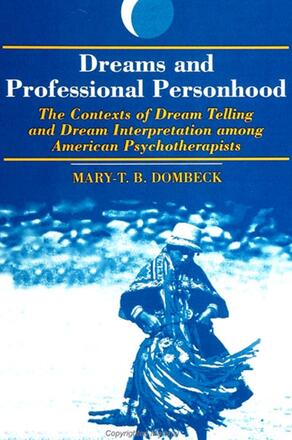
Dreams and Professional Personhood
The Contexts of Dream Telling and Dream Interpretation among American Psychotherapists
Alternative formats available from:
Description
Two community mental health centers in the Northeastern United States form the setting for this ethnographic study of dreams, dream telling, and dream interpretation. To gather information about American attitudes toward dreams and dream telling, the author observed and interviewed employees of these centers: social workers, psychologists, nurses, psychiatrists, secretaries, and medical technicians. The issues that emerge from the interviews are analyzed and clarified by exploring Western understandings of the concepts of person and self, and of professional personhood—the capacities and responsibilities ascribed to you by yourself and others in your milieu as professionals. The book also contains a comprehensive literature review of the research on dreams and an appendix of narrative statements made by informants on their dreams, their work, and their relationships.
Mary-T. B. Dombeck has been a psychotherapist for ten years and is on the faculty at the University of Rochester School of Nursing.
Reviews
"There are no books like this; there are no research models for this type of work. The author is at the same time inventing a model of research and applying it. The questions she asks and her perspective on them are important and needed. This is a significant contribution to the public's understanding of the importance of dreaming. "— Jeremy Taylor, Association for the Study of Dreams; author of Dream Work
"The discussion on personhood is fascinating, and, together with the implications for how the role applies to therapeutic relationships, constitutes what I found particularly interesting and exciting. " — Benjamin Kilborne, Department of Anthropology, University of Southern California
"I like the core idea of the work, that of applying an anthropological method of analysis to the study of dream interpretation in the contemporary U. S.. This is a very original notion, and it has important implications both for the study of dreams and for the practice of psychotherapy.
"In my view, people in the U. S. who are involved in dream study and research generally lack self-reflection on the wider contexts of their work. The author of this book has recognized this, and has made what I feel is an outstanding contribution to our understanding of those contexts. There is a growing number of high quality sociological and anthropological studies of dreams, and I think that this work both draws on that body of research and also makes a genuinely new contribution to the field. " — Kelly Bulkley, The University of Chicago